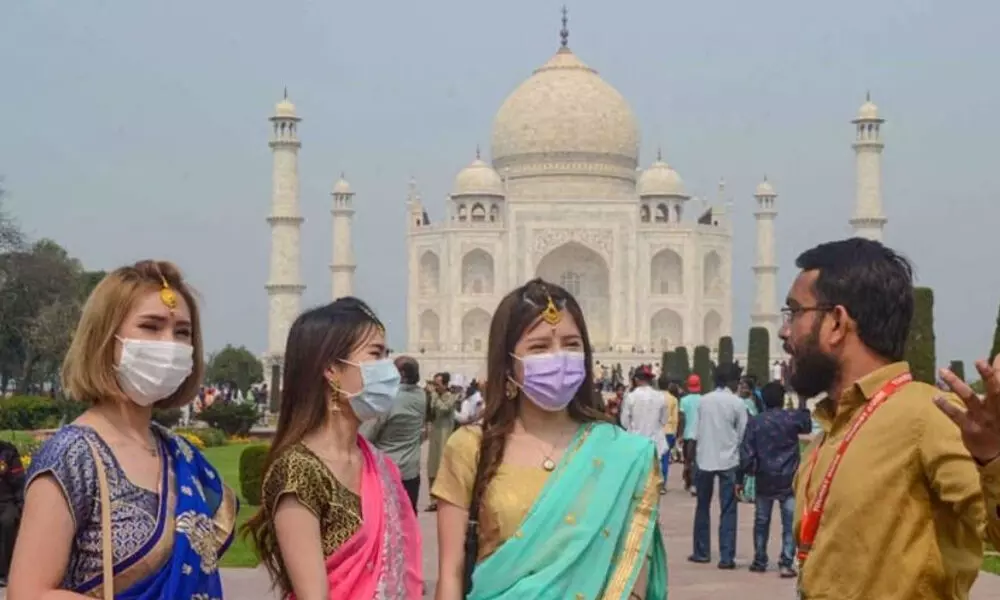Will millennials come to the rescue of tourism industry?
image for illustrative purpose

The discussion around sustainability in travel has been led by the growing influence - and rising income of millennial and Gen Z travellers, who say this issue is especially important to them.
Covid-19 should serve as a reminder and call to action for the airline industry. Though issues like safety, cleanliness, and hygiene will likely be top of mind for passengers in the short term, climate change is not going away.
Right now - and in a post Covid-19 world - brands that are leaders in sustainability efforts are in a unique position to gain consumer trust. This is especially important at a time when consumers are increasingly skeptical of big businesses that have received government bailout support. Putting a renewed focus on sustainability could serve as a rare bit of positivity for the sector and show that the industry is looking ahead to long-term survival.
"Deloitte global millennial survey 2019", reveals that "seeing/travelling the world" is their no.1 aspiration. Millennials are patiently waiting for the first chance they get to start travelling again which is going to significantly help boost the travel and tourism industry.
As travel providers continue to reposition their companies to adapt to current business conditions and shift some focus toward recovery, tracking vacation spending intentions and their underlying drivers is important.
A consumer sentiment study has shown that millennials are more willing to travel sooner and are less risk-averse. Early reports have already shown that older generations are more susceptible to the virus, this might encourage millennials and Gen-Z to be more open to travelling sooner once global restrictions completely ease. Millennials are also paradoxically more fearless and anxious compared to other generations, with social media as a tool, they are bound to make informed decisions while restarting their travel. Their eagerness to explore the world once again and leave behind the mental exhaustion of months of isolation will encourage them to begin travelling as soon as possible.
Millennials have also been technologically savvy and extremely well-informed travellers. Personalized experiences and authentic travel have been key factors in millennial travel. They believe in using technology to seek and create memorable experiences during their travels. Research has shown that 86 per cent of millennials would rather experience a new culture over partying, while 51 per cent plan to visit domestic and international travel destinations. 62 per cent are likely to extend business trips to visit areas or sites of cultural significance. Additionally, 85 per cent of millennial travellers check multiple sites for the best deals before booking.
These passengers were already eager to travel before Covid-19, believing that tourism benefits local communities as well as their personal growth. As we wade through the pandemic, millennials and Generation Z are more likely than others to travel domestically in the next six months (84 per cent vs 79 per cent). They are also less likely to adjust their travel plans and behaviour in light of the virus (66 per cent vs 70 per cent), and are also slightly less concerned that they will catch coronavirus while traveling (with 56 per cent rating their fear level at 5 or below and only 28 per cent saying it's an 8 or higher).
Airlines too are gearing up to woo these young passengers. Delta Air Lines has noticed younger consumers tend to prefer experiences rather than tactile goods, although it favours the term "Emerging high-value customers" (eHVCs) over "millennials". The Georgia-based carrier sees eHVCs as being much more likely to purchase premium products that will enhance their travel experience and has embarked upon a strategy to attract these high-yield future consumers at an early stage.
JetBlue Airways would doubtless agree about the importance of good-quality in-flight Internet. Its awarded-winning Fly-Fi service has proven extremely popular and has been credited with boosting the airline's Net Promoter Score, which is a loyalty metric that measures a customer's willingness to not only return for another purchase, but also make a recommendation to their family, friends or colleagues. Of course, JetBlue offers customers Fly-Fi for free, and very few airlines do that right now for a variety of reasons. Nonetheless, the tech-savvy millennial is used to ubiquitous and free connectivity on the ground, so why should the aeroplane be any different?
Travel has a unique potential to come back stronger than ever in the years to come, as a primary engine of growth, equality and prosperity for people around the world. The hospitality sector is resilient and we look to the future with optimism, as we will see the recovery and return to global travel.

